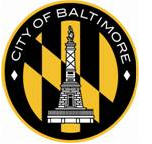Mayor Rawlings-Blake Announces Changes to City Parking to Address Misuse of Disability Tags
Wednesday Jul 9th, 2014

FOR IMMEDIATE RELEASE
Project SPACE Improves Access for Drivers with Disabilities; Aims to Increase Available Parking, Stop Theft, Abuse of Disability Placards
BALTIMORE, Md. (July 9, 2014)—Today, Mayor Stephanie Rawlings-Blake was joined by the Parking Authority of Baltimore City, the Mayor's Commission on Disabilities, the Downtown Partnership, and members of the disability community to announce Project SPACE, an initiative that aims to eliminate the abuse of disability placards, create more accessible parking for people with disabilities, and increase the general availability of on-street parking Downtown.
Project SPACE will require all drivers who utilize on-street parking in the downtown business district to pay the parking meter—even if a disability placard or tag is displayed. The cost and time limitations for on-street parking will be the same regardless of whether the driver is displaying a disability placard/tags.
"As we near the 24th anniversary of the Americans with Disabilities (ADA) Act, we want to offer greater freedom of access for those with disabilities and their families," said Mayor Stephanie Rawlings-Blake. "Baltimore should be accessible for everyone who wishes to enjoy the many attractions that are part of what makes our city a great place to live, work, and play. In addition to combatting the abuse of disability placards, Project SPACE, will ultimately create more parking spaces for everyone."
As part of Project SPACE, approximately 200 on-street parking spaces with highly accessible, ADA compliant single-space meters have been reserved for vehicles displaying a disability placard or tags. Additionally, all EZ Park meters throughout the Central Business District have been retrofitted to meet new ADA standards, making them even more accessible for people with disabilities. To meet state requirements, the time limit for all on-street parking spaces within areas affected by Project SPACE will increase to four hours.
Project SPACE is part of the solution to a major, ongoing parking problem in Baltimore City. Current policy allows individuals displaying a disability placard or license plates to park in metered on-street parking spaces free of charge. This often results in illegal use by motorists parking for long periods of time, and promotes theft of disability placards—which are now the number one item stolen out of vehicles. By removing the financial incentive to abuse a disability placard and requiring all drivers to pay for parking, Project SPACE aims to prevent placard theft and increase the number of available parking spaces for all drivers.
"We have performed a number of parking studies that have shown that, in certain city blocks, vehicles displaying disability placards often take up 100 percent of on-street spaces and remain parked there all day," said Peter Little, executive director of the Parking Authority of Baltimore City. "Stricter enforcement will create more parking turnover and increase the number of available parking spaces as abusers seek less expensive parking options off street."
While Project SPACE is launching in the Central Business District—an area defined as the streets bounded by Franklin Street on the north, President Street on the east, Key Highway on the south, and Martin Luther King, Jr. Boulevard on the west—the program will eventually expand to Fells Point, Harbor East, Federal Hill, Mount Vernon, and beyond.
"We work to promote equal rights and opportunities for people with disabilities, including making sure people with disabilities have adequate access to accessible parking options in Baltimore City," said Dr. Nollie Wood, Jr., executive director of the Mayor's Commission on Disabilities. "The Mayor's Commission on Disabilities supports Project SPACE, because it helps accomplish our overall goal. We're looking for equal opportunity—not cheaper services."
For more information on Project SPACE, please visit www.MoreSpace4All.com. Project SPACE is also on Facebook at www.facebook.com/MoreSpace4All and on Twitter and Instagram at @MoreSpace4All.
About the Parking Authority of Baltimore City
Parking Authority of Baltimore City (PABC) is a "quasi" governmental agency of Baltimore City and a registered 501(c)(3) organization with a mission to find, or create, and implement parking solutions for Baltimore City and to be the resource on all things "parking" in Baltimore. PABC oversees the management of 17 parking garages, numerous lots, over 800 EZ Park Meters, over 1,500 reserved residential handicap parking spaces, and 46 residential permit parking areas.
About the Mayor's Commission on Disabilities
The Mayor's Commission on Disabilities was created by City of Baltimore Ordinance #93-237 to promote equal rights and opportunities for people with disabilities. The Commission assists the City in assessing the accessibility of City facilities, programs, and services for citizens with disabilities; providing information and education programs to city government, businesses, and industries concerning issues relevant to citizens with disabilities; and complying with the Americans with Disabilities Act (ADA).